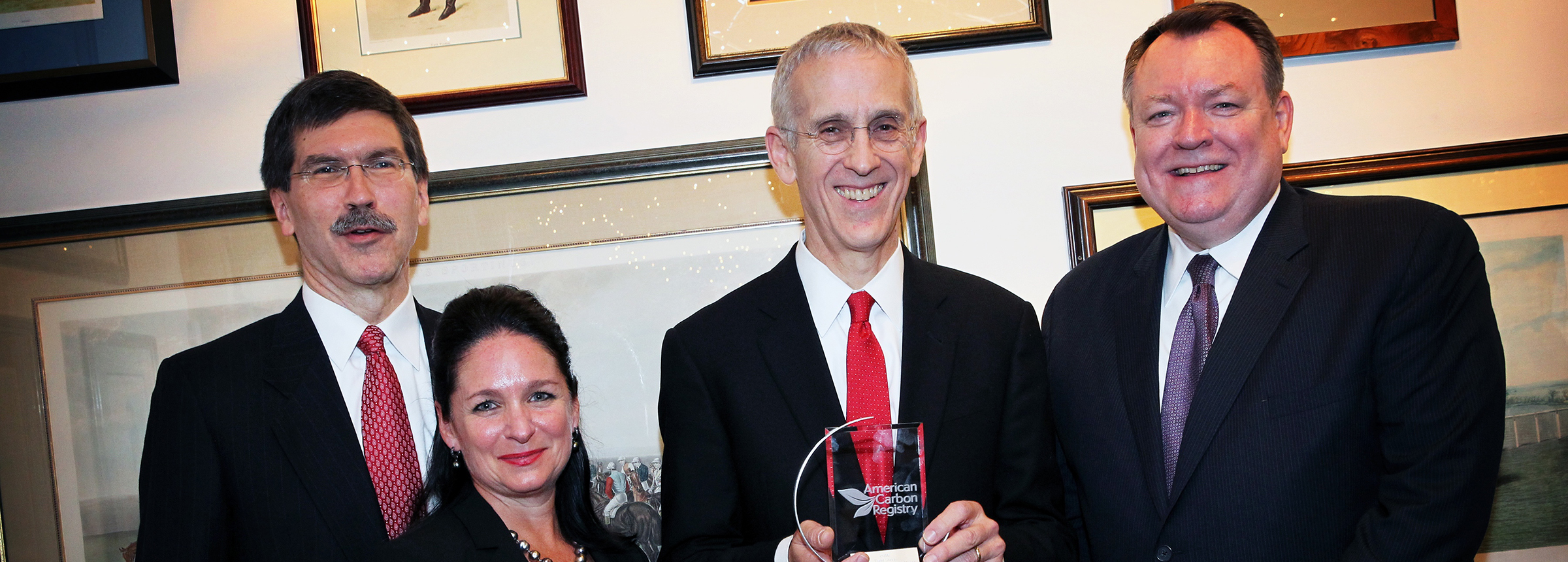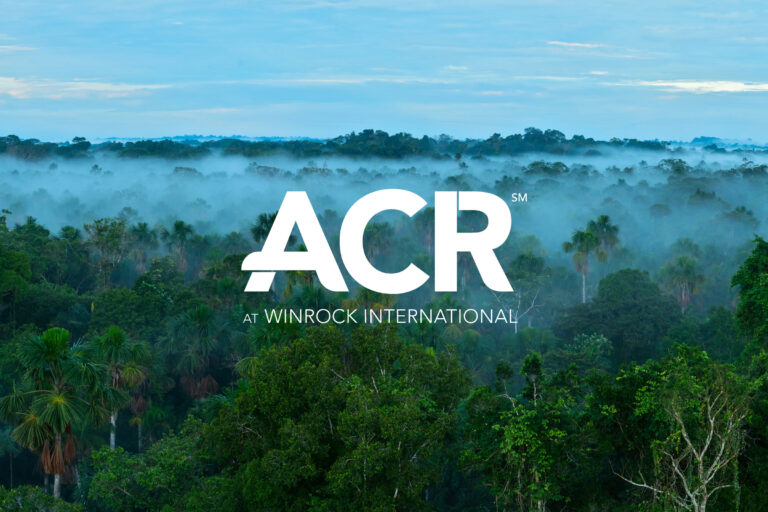
Special Envoy Todd Stern and ACR Director John Kadyszewski Discuss Climate Change
Earlier this month, the American Carbon Registry presented its 2016 Climate Leadership Award to former U.S. Special Envoy for Climate Change Todd Stern. The remarks ACR director John Kadyszewski made presenting the award and the ones Stern made accepting it provide a behind-the-scenes mini-history of climate change efforts leading up to COP21 in Paris. Here’s an excerpt:
John Kadyszewski
To look at the accomplishments that happened under Todd’s leadership we first have to talk about what dire conditions international negotiations were in post-Copenhagen.
We had a broken system, an artificial divide between developed and developing countries. We had an arcane set of acronyms and processes that led to the belief that the primary purpose was to obfuscate, delay and prevent any action on climate.
… Into that dire situation rode Todd Stern, who did not allow himself to be distracted from the substance of what we were trying to accomplish.
He saw the problem with having this divide between developed and developing countries, and having distinctions made not on what capacity a country had to do something about a problem but on whether they could get in a box that would allow them better credits than a different box.
So seeing that problem, seeing the problem with lack of ambition — nobody was really talking about having a system where the problem is large enough that everyone needs to contribute to the solution — you have to hold up a goal.
… At several points in this process, even up to just before negotiations at Paris, Todd led the U.S. delegation into the coalition for higher ambition. I’m not sure that got much press, but it was a significant statement within the community of people he had nurtured for over seven years to believe that in fact the U.S. was serious about taking action and was going to take steps that were meaningful.
… This is our climate leadership award. It’s not an award that goes for individual accomplishment or a particular year’s work. It’s for someone who’s contributed a great deal to the long-term success of a better world. Todd Stern typifies that. … We have 186 — this is shocking to me, 186 countries! — that have submitted their nationally intended emissions reduction programs. … You could say that the U.S. negotiating team really won. But from my perspective it wasn’t that the U.S. team won; it’s that they were led to the right position that could attract a broad coalition. And for that, ACR is privileged to present its Climate Leadership Award to Todd Stern.
Todd Stern
Thank you! Factoring out the excessive praise of me … I don’t usually hear such an extraordinarily well-informed description of what’s going on.
… Obviously this was a huge team effort, starting with the President and Hillary Clinton, too. She took me on her first trip, in January 2009 — to China, Japan, Indonesia and Korea — because she wanted to convey that climate change was a top-drawer issue for us.
… We stepped onto a moving train in 2009, because the Bali COP had decided to do this negotiation and having gone through the experience of Kyoto … and being familiar at that point with how these things go, I came in knowing absolutely to a certainty that there was not going to be a result in Copenhagen that everybody thought there was going to be.
But we worked very hard with the Danes … and some important things happened in that Copenhagen accord, which was rescued in the last 24 hours by the leaders of 30 countries … and which started us on a path that ultimately led to Paris.
And Paris is indeed I think a landmark agreement for many of the reasons that John already articulated. Everybody is in. There’s strong ambition based on what countries have agreed to do to begin with but even more based on what I think is the most important thing, which is the five-year cycle, the continual upward ratcheting of what countries have agreed to do, and also the five-year global stocktakes that happen two years before the ratchet periods.
We had a whole lot to do with the structure of the agreement … with the legal hybrid, which wasn’t what a lot of people wanted. But it has one virtue, which is that it made the agreement possible. It would have been impossible if it had been a purely legally binding agreement.
One pretty unexpected result was to get the article on carbon markets. We didn’t go in there thinking that was anywhere near in the bag. We actually didn’t think any of this was in the bag when we went in. But the markets article, article 6, was actually a very happy surprise.
…One of the things that I so value and appreciate about the American Carbon Registry is that you are actually doers, not just talkers. I mean, words are important. I just spent the last seven years worrying about words. … But you guys actually get things done. You develop the methodologies that make it possible to do carbon market trading with environmental integrity, and that’s what it’s all about.
…Paris has now given us a chance. … Paris was a beginning. It doesn’t begin to be an end. It opens the door. It puts a structure in place. Because this is a quintessentially global problem that now allows us to greatly accelerate the transformation from high- to low-carbon economies. Every tool that we can use to advance that is essential and carbon markets have a very important role to play. I salute ACR for being a leader in this field and am honored to receive this award.”
Click here to read the American Carbon Registry’s press release.
Read Story: ACR Presents Climate Leadership Award to Special Envoy for Climate Change Todd Stern.
Related Projects

